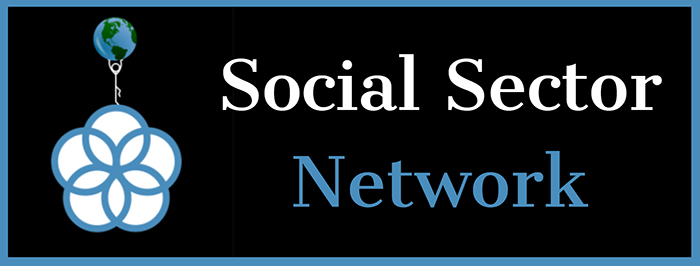Whether it’s your first idea or your 17th, transitioning from a thought to a profitable enterprise means navigating hurdles, rejections, left turns, roadblocks, and challenging statistics. In fact, most people with a great idea and a dream know the odds: 20% of small businesses fail after the first year, and that number increases to 50% during the fifth year, according to the U.S. Bureau of Labor Statistics. And part of the challenge comes not from banks or customers, but the person who came up with the idea. As Sean Branagan, director of Syracuse University’s Center for Digital Media Entrepreneurship, points out, fear of failure also can undermine a start-up. To assist with the launch of your social enterprise, consider this expert advice for the most common issues faced by those seeking to start a business.
Avoid a Credit Crisis
Few people possess bank accounts that allow for the launch of a business. In fact, 64% of small business owners across the United States reported having financial struggles, according to the annual small business credit survey. In addition, 69% of business owners reported using personal funds to support their operations. Many apply for loans and grants or seek out investors without exhausting other options such as local incubators or their personal savings. But applying for loans or grants shouldn’t be a social entrepreneur’s first line of defense — it should be a last resort. Allen Boseman, a partner and co-owner of ShermanBoseman Legal Group in Cleveland, Ohio — a firm that focuses on labor and employment, litigation, problem solving, and commercial transactions –— says if you are going to apply for a loan, then take what you need, but if it’s a line of credit, take as much as possible but use as little as possible. Social entrepreneurs also need to ask themselves these questions: What other options are available to help fund my business? When should I apply for a loan or grant, and how much do I need? These are all things that social entrepreneurs should determine before potentially putting themselves in financial hardships or debt.

Mion Edwards (above) encourages social entrepreneurs to improve their businesses through research, observation, and inspiration. (Photo courtesy of Mion Edwards)
Pro Tip: Mion Edwards is a social entrepreneur and owner of Styles by Mion, located in Washington, D.C. The small business sells vintage HBCU apparel and helps clients revamp their closets or pick pieces for events. Edwards says before starting her business, she didn’t have the capital needed to get her enterprise off the ground. She instead found ways to save as much money as possible to pay for things like her website. “I would save all of my money, all of my check that I would receive, and try to have a good amount to start,” Edwards says.
Know Your Audience
Conducting market research before launching a product or service helps a business owner avoid common pitfalls and build the right customer base. According to the U.S. Small Business Administration, there are six things entrepreneurs need to focus on during their research: demand, market size, economic indicators, location, market saturation, and pricing. In addition, Social Sector Network, an online resource that provides educational tools and training, suggests social entrepreneurs spend time observing their target audience and creating customer personas.
In 2017, Edwards started the Lean on Mi scholarship program, which provides high school seniors in the Washington D.C. area with laptops and dorm supplies for college. The program is funded by 50% of all her sales. When Edwards started the scholarship in 2017, the grand prize winner received a brand new laptop, and four other students received gift baskets, each valued at $70. This year, Edwards plans to give away a laptop to the grand prize winner and eight gift baskets to other lucky students. To date, the Lean on Mi scholarship has given away two laptops and 12 gift baskets, each filled with school supplies, dorm decorations, and personalized gifts. “I wanted to give back and a part of giving back is giving back to people who look like me and come from where I come from,” she says.
Pro Tip: To find qualifying high school students to apply for the scholarship, Edwards conducted market research. In addition, Edwards says researching allows you to see what is out there, to draw inspiration from other business owners, to find out what you like, and take those observations to make something that reflects your vision. “I like how transparent she is on her website or her Instagram post, or I like the aesthetic of her page,” Edwards says. Before creating her website, Edwards researched fashion blog templates that best fit her idea and came across WIX.
Stand Out From the Rest
Having a message that your target audience can relate to does not only set your business apart from similar enterprises, but it will also help in attracting loyal customers. In 2017, the market and consumer data site, Statista, found that 47% of small business owners spent less than $10,000 on marketing. Social Sector Network says social entrepreneurs should make sure to test different stories with the public to see which one resonates with customers, and to make sure that their image and message stays consistent across different platforms. In addition, social entrepreneurs should determine what social issue is important to them. Alejandro Amezcua, Ph.D., assistant professor of entrepreneurship at Syracuse University’s Martin J.Whitman School of Management, says it is important for social entrepreneurs to know that their enterprise is not all about the money, but making real-life changes through their products or services.
Pro Tip: To brand herself on social media and the web, Edwards says being consistent is not the only thing a social entrepreneur should keep in mind. She also says having the right hashtags can help a social entrepreneur. “I put out a lot of quality pictures, but also within those pictures, I make sure that I try to connect as well with my audience,” Edwards says. In addition to creating a name for her brand on her Instagram page, Edwards creates tutorial videos to educate other entrepreneurs about free and useful applications. Edwards says some of her favorite apps include Adobe Lightroom to edit and color correct images; Canva to create flyers, graphics, and social media content; InShot to edit the ratio of a video for your desired platform; and Prequel to add filters to your videos after editing them in InShot or iMovie. Engagement with that content elevates the business owners’ page. “I just wanted to help other entrepreneurs, and I wanted other owners to learn how to create new highlights on their page or learn how to use different apps on their phone to get the same look as if you did it on Photoshop,” Edwards says. She also says if an entrepreneur is not sure about how to elevate their social media platforms, they should research it on Google or YouTube. She says based on personal experiences, she sees these online resources as a way to see what other people are using or saying.
Construction Considerations
Before choosing an office space, figure out what kind of environment will assist in the growth of your company, how much you want to pay in rent or renovations, and if you even need office space. Small business owners typically spend at least $36,000 on renovations for office space. Because of that expense, Branagan says social entrepreneurs should only think about getting an office space if their business demands it because the cost can lead to a less sustainable business, increasing the likelihood of failure for said business.
Pro Tip: Branagan says business owners should only seek an office space or location when the services they provide require it. He also says business owners should focus on keeping variable costs high and fixed costs low. Having a location is a fixed cost, which he says is less sustainable and can increase the likelihood of a business failing.
Boseman says that he knew an appealing office space was important, but in the beginning he focused on making sure his business was financially solvent, which allowed his team to direct their attention on building the company. “We were really able to focus on the business, take the kind of cases we really wanted to take without sitting there, like pressing and being worried all the time about whether or not we would be able to afford our rent,” Boseman says.
Safe Guard Your Success
Many business owners make the mistake of not hiring a lawyer or seeking legal advice at the start of their business — only to face expensive options when trouble arises. And trouble will arrive. In a given year, 36% to 53% of small businesses will find themselves in a lawsuit. Having a lawyer also helps you determine the right entity for your enterprise (whether it’s an LLC, B Corp, S Corp, partnership, sole proprietorship, or C Corp). Plus, social entrepreneurs must keep in mind that the number of people in their business determines which business structure they can apply for.
Pro Tip: Boseman says having a lawyer in place avoids future legal issues. “The way I always explain it to people is the money you pay on the front end is going to be far less than the money to pay on the back end,” Boseman says. He also advises that when going into partnership with another person, you need to establish a written agreement. “If you have three partners, there should be three partners listed in the operating agreement,” he says.
Featured image courtesy of Daria Nepriakhina on Unsplash.







